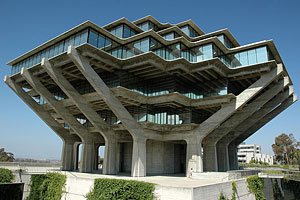Regional Gatherings
As a special bonus for conference attendees, on December 3rd, we will host two regional face-to-face post-conference evening sessions. These regional gatherings will allow us to extend the online conversations started on December 2, and connect face-to-face with DET/CHE members and corporate partners. This will also be an opportunity for our corporate partners to set up booths where they can share their latest tools in a hands-on environment.
Northern California - Mills College

- Thursday, December 3
- 3:00 p.m. – 7:00 p.m. PST
- The Bender Room, Carnegie Building
- Mills College, Oakland
- Map and Directions
Panel Discussion
Ready for Impact? Repositioning educational technology services to serve campus needs during times of pandemics, budget cuts, and a new generation of digital learners.
Moderator
- Maggie Beers, Director of Academic Technology, San Francisco State University
Panelists
- Jean-Pierre Bayard, AVP Academic Technology Initiatives, California State University, Sacramento
- Allen Chen, Assistant Dean, Law Technology and Academic Computing, Santa Clara University
- Mara Hancock, Director for Educational Technologies, University of California Berkeley
- Mami How, Dean, Educational Technology, City College of San Francisco
Description
This panel of educational technology leaders, representing a cross-section of higher education institutions, will discuss their strategies for providing high impact services to their campuses at a time when demand is increasing and budgets are shrinking. Specifically, these leaders will discuss how their academic technology units can help their campuses meet the needs and expectations of millennial faculty and students; enable high impact educational practices and empower student success; help faculty manage increasing workloads and large class sizes; and, ultimately, use technology to do more with less during the current budget crisis.
About Mills College
Founded in 1852 as the Young Ladies' Seminary in Benicia, California, Mills College boasts a rich history as a leader in women’s education. Mills was founded two years after California was admitted to statehood and the same year the city of Oakland was established. The University of California and Stanford had yet to exist, and miners, farmers, and merchants wanted to educate their daughters without sending them on the perilous journey to East Coast schools.
Southern California - UC San Diego

- Thursday, December 3
- 3:00 p.m. – 7:00 p.m. PST
- Price Center
- UC San Diego, San Diego
- Parking Info, Map and Directions (PDF)
- Map and Directions (Price Center Website)
Schedule
- 3:00 p.m. to 4:30 p.m. – Meet and Greet, Drinks and Appetizers
- 4:30 p.m. to 5:30 p.m. – Dinner Buffet
- 5:30 p.m. to 6:30 p.m. – Welcome and Introductions, Panel Discussion
- 6:30 p.m. to 7:00 p.m. – DET/CHE Awards, Closing Remarks
Panel Discussion
Assessing the Value of the Cloud: The Complex IT Needs of the Higher Education Enterprise
Moderator
- Otto Khera, Director, Center for Scholarly Technology, University of Southern California
Panelists
- Jaime Casap, Google
- Declan Fleming, Director, Information Technology Department, UC San Diego Libraries
- Andrea Henne, Dean of Online & Distributed Learning, San Diego Community College District
- Brian Parent, Manager, Systems, Academic Computing & Media Services, UC San Diego
- Rich Pickett, CIO, San Diego State University
Description
According to a recent EDUCAUSE survey, over 20 percent of its members outsource email services to the 'cloud'. As the number of higher-education institutions increases that opt for outsourcing critical IT functions such as email, calendaring, and portals to the 'cloud' via service providers like Google and Microsoft, questions arise about the viability of such services to maintain institutional interests. Should higher education provide core IT services if the core competency of these institutions is research, education, and community outreach (and likely not IT provisioning)? If not, which IT services should remain within the purview and control of the higher education institution -- such management of critical data? And how will data on students, academic programs, and institutional performance be accessed as online interactions move out of the enterprise and onto the 'cloud'?
About UCSD
Founded in 1960, the University of California, San Diego is one of the nation’s most accomplished research universities, widely acknowledged for its local impact, national influence and global reach. The campus is ideally located near the Pacific Ocean, the U.S.-Mexico border and the Pacific Rim. UC San Diego is renowned for its collaborative, diverse and cross-disciplinary ethos that transcends traditional boundaries in science, arts and the humanities.